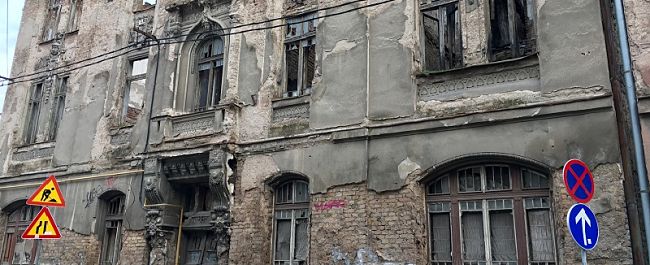Preventing and responding to conflict: Improving EU civilian capabilities must be prioritised

This research explores ways in which civilian capabilities can enhance the EU’s efforts in conflict prevention and peacebuilding.
About the research
Despite its political commitment to preventing and responding to conflicts, there are still significant shortfalls in EU conflict prevention and peacebuilding capabilities. Yet enhanced civilian means could make a real difference in the EU’s efforts in working towards sustainable peace.
The research project EU-CIVCAP: Improving EU capabilities for peacebuilding evaluates the EU’s record to date in this area and compares it to that of other international actors such as the United Nations and the Organisation for Security and Co-operation in Europe. It examines the EU’s engagement in two key regions (the Western Balkans and the Horn of Africa) and identifies the best civilian means to enhance the EU’s conflict prevention and peacebuilding capabilities and address existing shortfalls.
This briefing highlights lessons learned and best practice for EU conflict prevention and peacebuilding in the areas of procedures, personnel and technologies (for further information see www.eu-civcap.net/publications/).
Image: Building in Sarajevo, Bosnia and Herzegovina; image by University of Bristol/Gilberto Algar-Faria.
Policy implications
- Procedures: EU institutions should mainstream conflict prevention as a matter of policy and practice across the EU’s external action and prioritise prevention as well as response. The EU should further develop its capacities for preventive diplomacy, for example, by reinforcing and tailoring the support provided to EU Special Representatives and Heads of Delegations in charge of carrying out dialogue in conflict-affected countries.
- Personnel: Training of civilian personnel at the national level should be standardised. The EU should ensure that local ownership and a deeper understanding of the specific context (culture, history and traditions) where the personnel will operate is duly incorporated into training activities. Systems to select and deploy civilian personnel should be harmonised across Member States, with standard minimum competencies such as strong language skills.
- Technologies: The EU and its Member States should make better use of Information and Communication Technologies (ICTs) and Big Data and integrate them more fully into early warning, conflict analysis and peacebuilding. The EU should train staff involved in these policies on new technological tools.
Key findings
- Procedures for conflict prevention and mediation The EU has a wide array of policies, institutions and instruments that enable intervention in conflict prevention. However, conflict prevention is not always prioritised or integrated into decision-making which hinders effectiveness in this area. Mediation is a key part of conflict prevention and the European External Action Service has its own mediation staff, but questions remain around the EU’s neutrality, its ability to engage in mediation, and the effective use of preventative diplomacy instruments such as the EU Special Representatives.
- Personnel: training and recruitment The European Security and Defence College and Europe’s New Training Initiative for Civilian Crisis Management (ENTRi) have improved training for EU civilian personnel. However, there is room for improvement, for instance, regarding the integration of local ownership issues in the curricula. Systems to select and deploy civilian personnel used by the Member States vary widely and many of them present gaps, with consequences for the work of missions.
- Technologies: better understanding and use of Information and Communication Technologies (ICTs) and Big Data ICTs and Big Data offer a valuable addition to peacebuilding and conflict prevention activities due to their ability to generate, collect and share conflict-related data that might feed early warning systems. Yet those formulating and implementing EU policies do not always take advantage of these technologies. Member States are currently deploying their ICTs in the framework of either national or EU actions, but cooperation and coordination among them is limited.
Further information
This three-year Horizon 2020 project will provide a comprehensive, comparative and multidisciplinary analysis of EU conflict prevention and peacebuilding.
The EU-CIVCAP research project is led by the University of Bristol and includes 10 partners from across eight countries in Europe, including Aberdeen University, Maastricht University, Roskilde University, Royal Danish Defence College, Istituto Affari Internazionali, Centre for European Policy Studies, EU Satellite Centre, European Peacebuilding Liaison Office, Belgrade Centre for Security Policy and Transparency Solutions. See also: www.eu-civcap.net; twitter: @eucivcap, email: eu-civcap@bristol.ac.uk
Funding
This project has received funding from the European Union’s Horizon 2020 research and innovation programme under grant agreement no.: 653227.
Policy Briefing 40: 2016
Contact the researchers
Dr Ana E. Juncos, Consortium Coordinator, University of
Bristol
a.e.juncos@bristol.ac.uk
Authors
Dr Ana E. Juncos, University of Bristol
